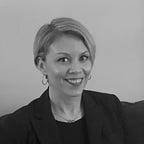FOR GROWTH STARTUPS AND SCALEUPS
How do you choose the best hiring assessment?
Here are 5 tips to help you!
Nikki Blacksmith and Kelly Diouf
Growth-stage Startups and scaleups often ask us how to evaluate psychometric assessments for use in their hiring process. It can be difficult to choose the best assessment for your company if you don’t have a background in industrial-organizational psychology or psychometrics. Lucky for you, we do! And we are happy to share some tips.
Below are some key questions to consider when choosing an assessment:
For what purpose was the hiring test designed?
The effectiveness of a test is dependent on its purpose. For example, if a test was designed to hire sales representatives, it is not a valid assessment for hiring c-suite executives. Therefore, it is important to know how you want to use the assessment and ensure the test was designed for your needs.
TIP: Define your objectives before you search for the right tool.
What evidence exists to support the validity and reliability of the assessment?
Just as with any other product or tool, some hiring tests are better than others. The critical factor to evaluate is test validity, including test reliability. The point is to make sure that the test measures what it is supposed to measure (validity) and that the test results are free from measurement error (i.e., reliability). A test can be judged as having high validity if there is evidence to support all its claims. For example, if the test developer claims the test measures the personality trait conscientiousness, there should be evidence to support this claim. Validity evidence should also include data that shows it does not discriminate against any protected classes.
TIP: Ask to review the technical report and read about the validation process.
Will the applicants’ experience be positive or negative?
It is important to consider how applicants will react to your assessment. If they have negative reactions, it is more likely that they will drop out of the application process or have a negative impression of your organization. You don’t want to turn off top talent with your hiring test, so consider the applicants’ experience as well.
TIP: Ask for a demo or if it is possible to take the assessment yourself.
How will the test be integrated into your hiring system?
It’s also important to understand how well the test will be incorporated into your overall hiring process. Hiring tests should help simplify the process for your recruiters and hiring managers, not make it more cumbersome. Therefore, it is important to determine where the test will fit in your overall process.
TIP: Ask questions about the user process and technology.
How will you train and educate recruiters and hiring managers?
A hiring test only works if it is used properly. Therefore, it is important to ensure that the key users (e.g., HR staff, recruiters, hiring managers) understand how to interpret scores and use the test.
TIP: Ask whether there are materials to support communication and education for the roll-out in your company.
Conclusion
Over 75% — 85% of Fortune 500 companies use psychometric assessments for hiring because they work. The entrepreneurial ecosystem is late to the game. Scaleups should consider psychometric assessments for hiring if they want to bring top talent onto their teams.
Do you have assessment-related questions?
We have some great psychometricians on the Blackhawke team. Feel free to schedule a 15-minute consultation and we’d be happy to provide some advice, no strings attached!
About Blackhawke Behavior Science
Want to learn more about building a strong entrepreneurial team and healthy organizational culture? Visit Blackhawke’s Medium publication, From I-O to IPO, or www.blackhawke.io and get social with us on Facebook, Linkedin, Instagram, or Twitter!
